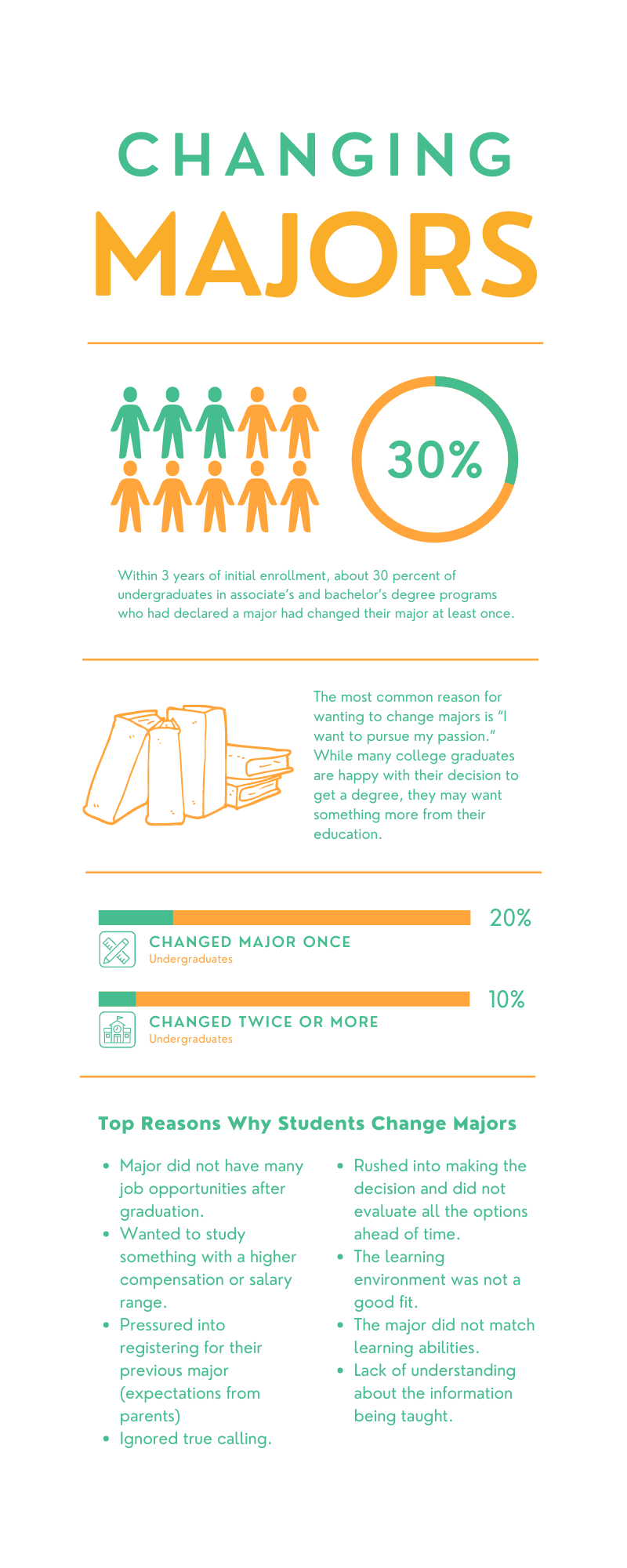By Raven Brown, Opinion Editor
When thinking about getting an education, the path to graduating from college is seldom linear. After high school, some students decide to continue their education while others may choose to enter the workforce and hold off on going to college until they are ready. Those who go to college right away are bombarded with endless amounts of majors to choose from, and the pressure to decide on what to do for the rest of their lives can become a daunting task.
When I first graduated high school, I went to El Camino College thinking I wanted to be a fashion major. I quickly realized that I was not where I wanted to be and decided to start taking general education classes until I found a subject that really interested me. Eventually landing on nursing, and then later nutrition, kinesiology, psychology, and finally journalism, I realized that my education represented who I was at different points in my life. I always knew I wanted to help people, but as I went through these majors I saw that there were so many different ways to do that.
I never intended to change majors so many times. I knew I was trying to figure out what I really wanted to do and what I was passionate about, even if it meant taking two steps back and one step forward until I got it right. It’s not uncommon to change your major throughout your career as a student; maybe not six times like I did, but about 30% of college students change their major at least once in their undergraduate years.
Changing direction is more common than we tend to think. Not everyone knows what they want to do at the age of 18, but our education system forces high school-aged teenagers to choose a path and stick to it.

Why do we think teenagers could possibly have their lives figured out as soon as they cross over from childhood to adulthood? While some teens and young adults have a clear idea as to what they want to do during their college years, most don’t. Most adults have no idea what they’re doing half the time, so why are we holding kids to this standard so early?
Dr. Brant Burkey, an associate professor in the Communication Department at California State University, Dominguez Hills, is no stranger to the process of weeding out majors to find the right one. Starting as a business major with interests in sociology and psychology, he eventually found where he belonged in communications.
“When you’re thinking of your career, there’s all these things that are going to happen in your life along the way,” Burkey said. “It’s really not this idea that you need to choose this one path. But to realize that all the paths are there in front of you, so choose the one that seems the most interesting and if it ceases to be, then hop on another path.”
Amanda Krick, an alumna of CSUDH who majored in sociology and went on to get her teaching credential, originally had plans of graduating with a degree in mathematics. While her focus was always set on becoming a teacher, her educational path changed before transferring from ECC.
“I was getting a little bit distracted when I was getting higher up in the math classes,” Krick said. “My schoolwork was taking so long and it just seemed like so much work as a math major to then become a teacher.”
Sometimes along the way, reassessing our goals and adjusting our educational plans is necessary to get us where we need to be. There’s nothing wrong with changing majors if you feel as though it will benefit your future and your career. People will tell you to “stick to the plan” and doubt your vision if it is not aligned with theirs. The naysayers will come, but in the end, it is your life that you are building and your passions that need to be pursued.
